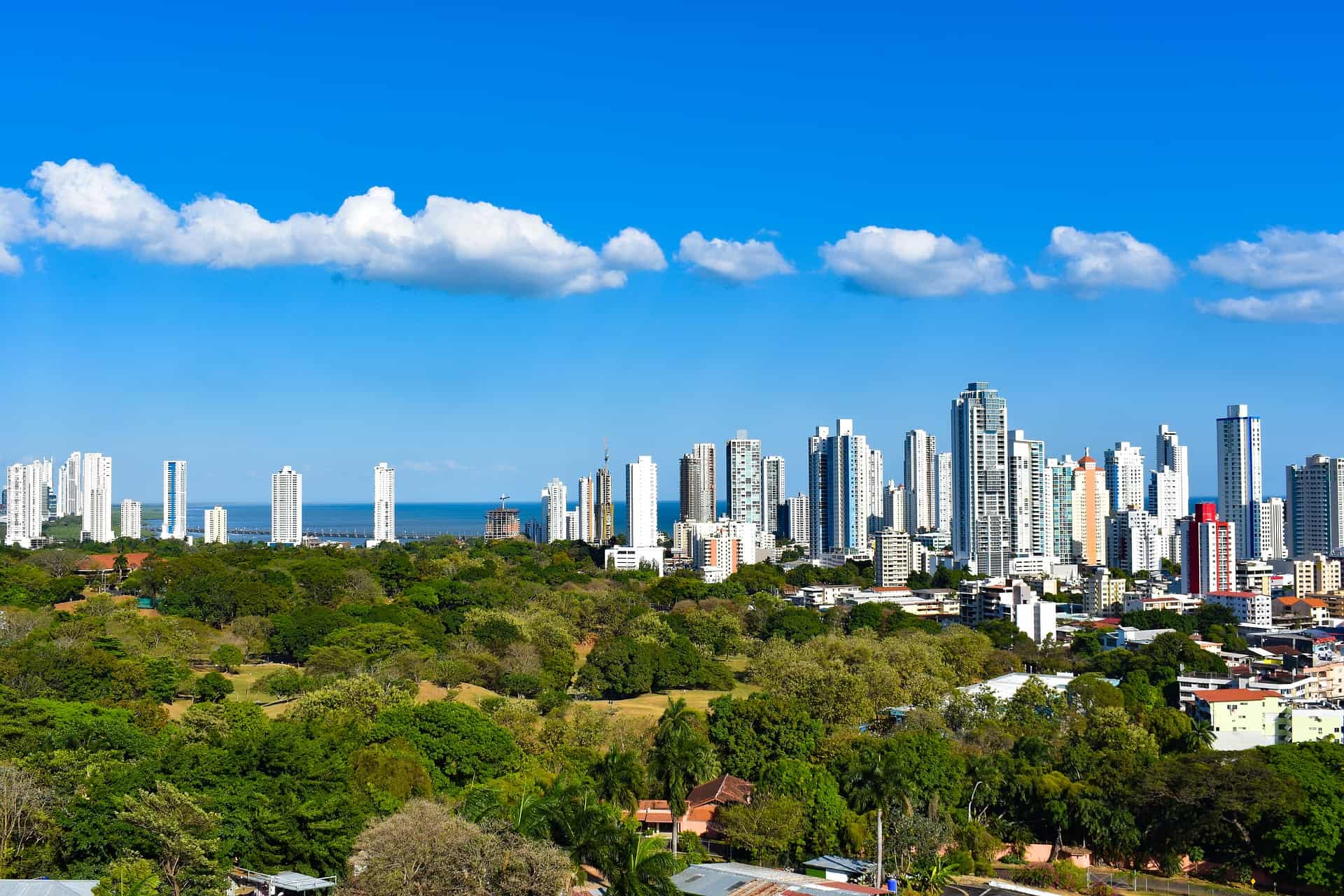Yoselin was left without a preschool. Brithany’s virtual classes were suspended. Rafael still struggles with the computer, while Santiago has an at-home teacher who works outside of the formal system.
In Panama, children and their parents are suffering more and more with the prolonged closure of schools.
Érica Luna, a Nicaraguan immigrant, is 29 years old and the mother of Yoselin, 3. They live in the San Isidro neighborhood, on the outskirts of Panama City, where houses with zinc roofs emerge from hills full of vegetation. Her husband works all day and she, due to the pandemic, stopped cleaning houses; she found new work at a neighborhood market.
“The pandemic has transformed us a lot,” Luna says. “I used to take the girl to a preschool, now I can’t. There are times when I have to bring her here, to the place where I work.”
Luna periodically collects educational material that the public preschool gives her. But Yoselin spends most of her time on her mother’s cell phone, playing video games, until she falls asleep on cardboard, at her mother’s feet, at the fruit stand.
Latin America is the region that has spent the longest time without face-to-face classes, according to UNICEF. Panama, like Ecuador and Peru, still has not received students in their schools in 2021.
According to UNICEF, at least 3 million children in the region will never return to the classroom again after this prolonged closure that began in 2020, when the pandemic broke out. Maintaining closures this year will have serious consequences, it says.
One more job for single parents
In Santa Rita, another suburban neighborhood, Brithany, 8, attends occasional virtual classes using the prepaid cell phone of her mother, Milena Mendosa, who sometimes has to leave the girl with a neighbor while she works.
Sometimes virtual classes are canceled. Other times, the cell signal weakens and it becomes difficult to follow the lesson.
“I feel that it is more work,” Mendosa says. “They are giving too many brochures, they are being pressured too much. I feel that it is very difficult because it is one more job.”
Panama has 4.2 million inhabitants and, according to official figures for 2021, some 890,000 are schoolchildren.
Outside the system
Krystal Pérez is Santiago’s mother. Detecting his boredom in front of a screen, she organized with other parents to remove their kids from private school and have a teacher tutor them at home.
“That was what saved education for our children, because 5, 6, 7 hours on the screen was not going to work for us,” she explains.
Her son — and a handful of others — attend lessons at a high-rise apartment in Punta Paitilla, in the urban area of Panama City.
Carolina Castillón, Leonor’s mother, is also a member of this group. “We left the system at once. The school left us alone, and there was no other option,” she confesses.
Persisting online
In San Francisco, another urban neighborhood in the capital, Rafael, 5, still receives classes on the computer. But his mother, Ana María Areiza, believes that they will not support much more.
“I miss my son coming back from school telling me stories. He already sees his friends on the computer and doesn’t recognize them. He no longer has things to tell me,” she says.
Children need in-person interaction “to learn the behavior and qualities of the culture in which they live. Not being with others slows them down and can lead to behavioral problems,” explains pediatrician and neonatologist Enrique Ruidíaz.
UNICEF cites studies that explain that schools are not the main contagion point for Covid-19, and that with proper sanitary measures, classes can restart.
“It cannot be possible for restaurants to open, for shopping centers to open (…) and for schools not to open,” says Ruth Custode, specialist for Latin America at UNICEF in Panama.
The Minister of Education of Panama, Maruja Gorday, says that she “endorses” the call of UNICEF and that the reopening is near.
“The reopening will be gradual, progressive and safe. (…) To the extent that we advance in vaccination and that the health authorities urge us to start a process of closer ties, we are ready to do so,” she explained to AFP.
More news on the subject is expected in April.
Meanwhile, Brithany, who likes English, sums up the sentiment of her generation: “I want this to end.”






